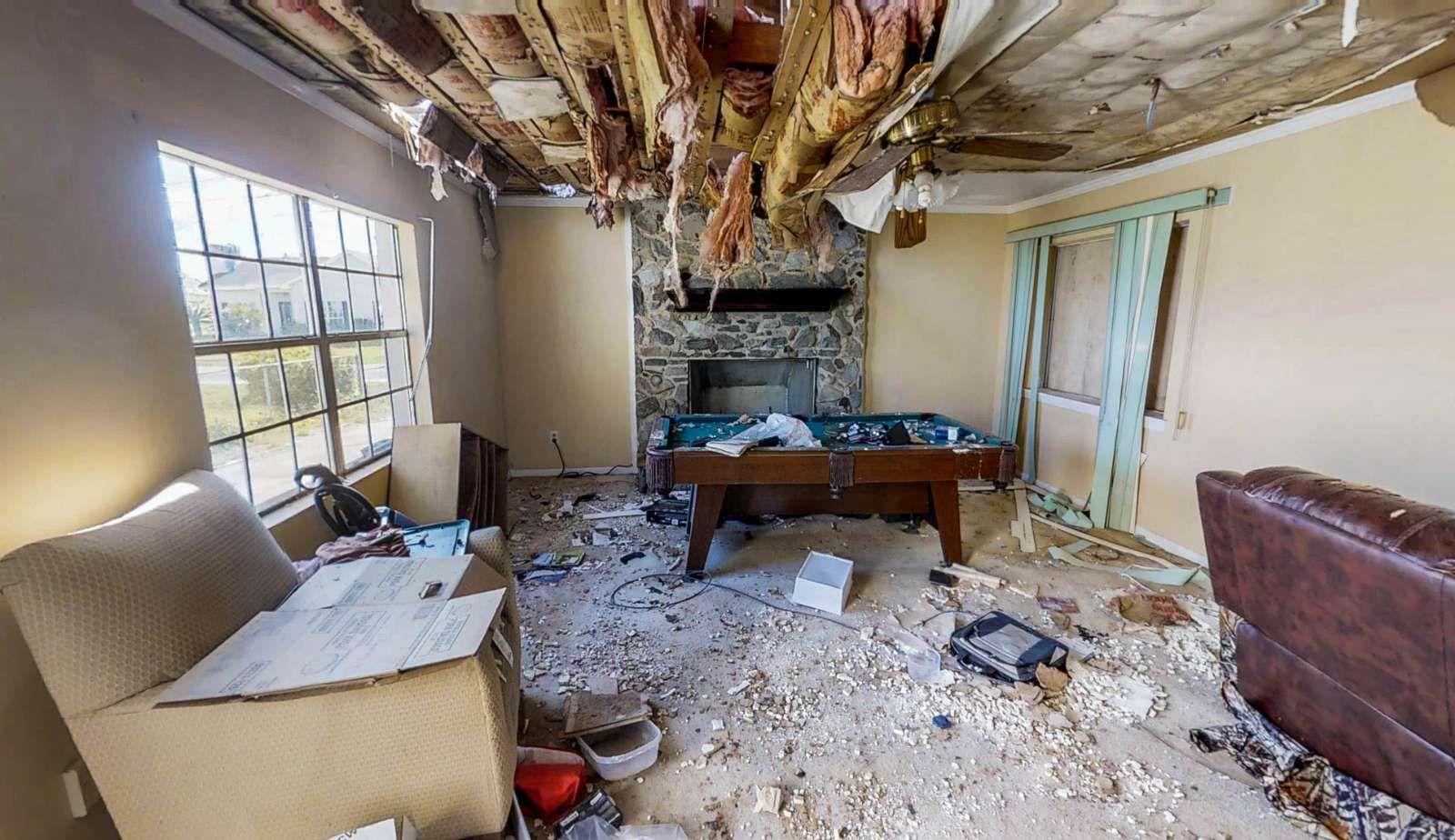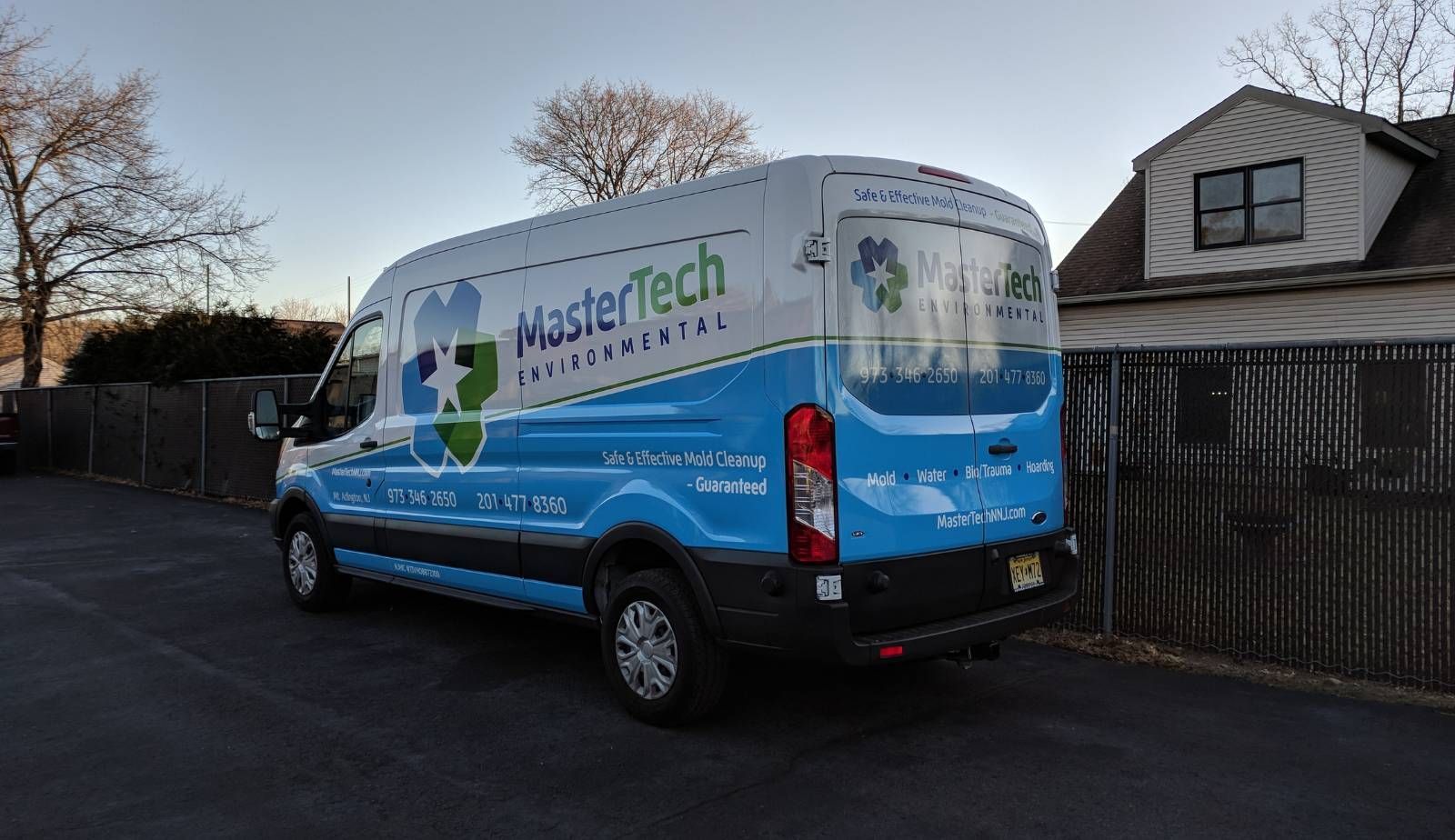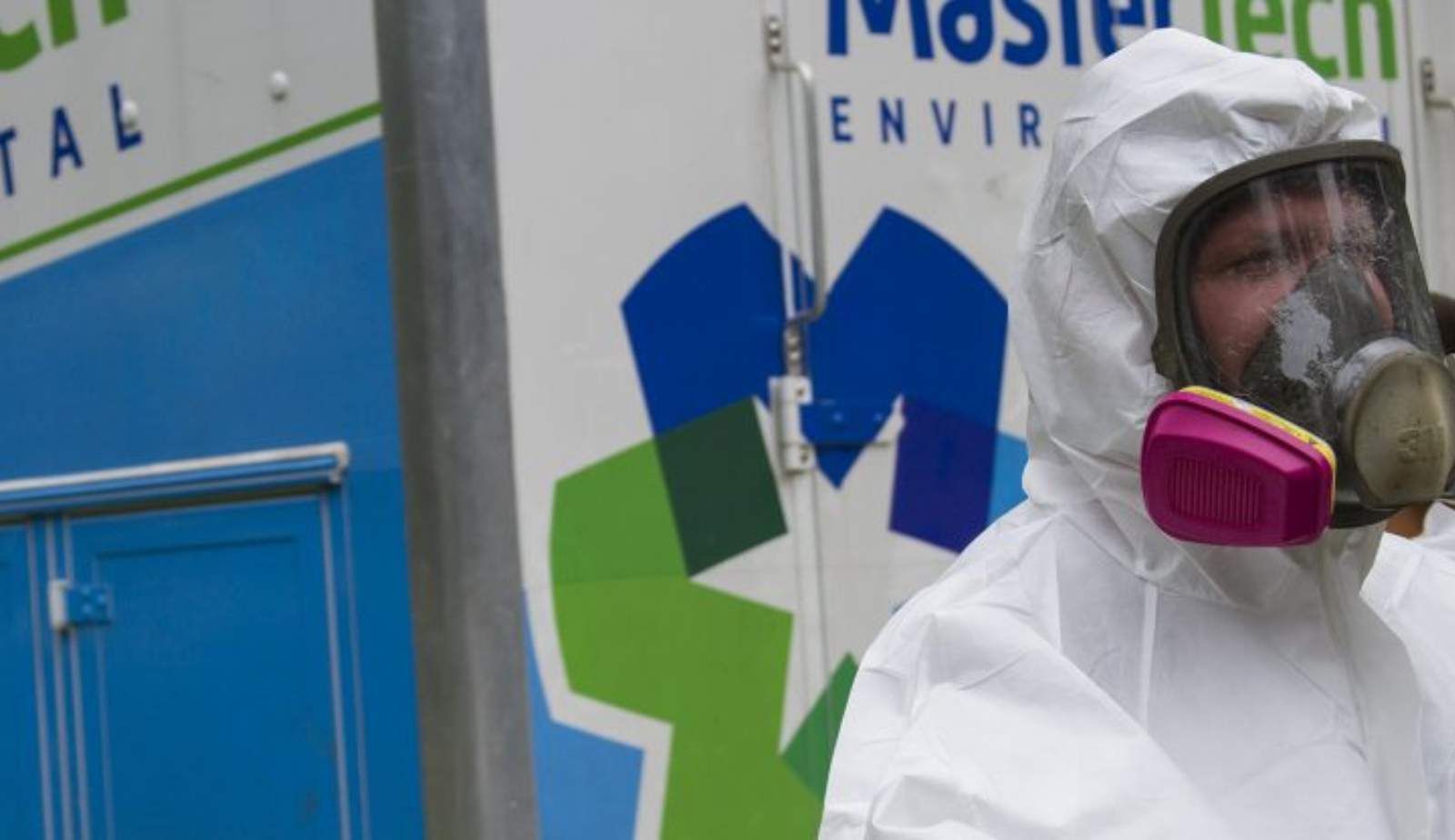
Mold and water damage restoration franchises offer a unique opportunity for entrepreneurs seeking stability in uncertain economic times.
These businesses provide essential services that remain in demand regardless of economic conditions, making them highly recession-resistant. Natural disasters, plumbing failures, and other water-related incidents occur irrespective of the financial climate, ensuring a steady stream of work for restoration professionals.
Franchises like Mastertech Environmental are experiencing rapid growth due to increased awareness of health risks associated with mold exposure and the rising frequency of extreme weather events causing water damage. These franchises benefit from established systems, brand recognition, and ongoing support for franchisees, which can be crucial advantages in a competitive market.
Investing in a mold and water damage restoration franchise can provide entrepreneurs with a recession-resistant business model that offers essential services to both homeowners and businesses. With the backing of a reputable franchise system, owners can focus on delivering high-quality restoration services while benefiting from proven operational strategies and marketing support.
Examining the Recession Resistance of Restoration Franchises
Restoration franchises demonstrate resilience during economic fluctuations due to consistent demand for their services. Climate change and aging infrastructure contribute to an increased need for restoration work, further solidifying the industry's stability.
Importance of Restoration Services During Economic Challenges
Restoration franchises tend to maintain steady workflows and profits even when consumer spending tightens in other sectors. This stability stems from the essential nature of their services. Property damage from water, fire, or mold requires immediate attention regardless of economic conditions.
Insurance coverage plays a crucial role in sustaining demand. Most homeowners and businesses have insurance policies that cover property damage, ensuring they can afford restoration services even during financial hardships.
Restoration companies often offer diverse service offerings, addressing various types of damage. This versatility allows them to adapt to changing market needs and maintain a consistent revenue stream.
Role of Climate Change and Natural Disasters in Market Demand
Climate change has led to an increase in extreme weather events, driving up the need for restoration services. Hurricanes, floods, and wildfires cause extensive property damage, creating a surge in demand for restoration work.
Aging infrastructure in many regions exacerbates the impact of natural disasters. Older buildings are more susceptible to damage from severe weather, further increasing the need for restoration services.
The 24/7 emergency nature of restoration work ensures a constant flow of business. Natural disasters can strike at any time, requiring immediate response regardless of economic conditions.
Restoration franchises often expand their services to include preventative measures and disaster preparedness. This approach helps diversify their offerings and creates additional revenue streams, enhancing their recession resistance.
Understanding the Restoration Industry Landscape
The restoration industry is a dynamic sector focused on repairing and restoring properties damaged by water, mold, fire, and other disasters. This field has seen significant growth due to increasing natural disasters and a greater awareness of health risks associated with property damage.
Key Services in Water Damage and Mold Remediation
Water damage restoration involves rapid response to minimize property damage and prevent mold growth. Services include water extraction, drying, and dehumidification. Technicians use specialized equipment like moisture meters and thermal imaging cameras to detect hidden water damage.
Mold remediation focuses on identifying and eliminating mold infestations. This process typically includes containment, air filtration, and removal of contaminated materials. Specialized restoration services often require professional expertise due to health and safety regulations.
Companies in this industry also offer structural repairs, content restoration, and odor removal. Many restoration firms provide 24/7 emergency services to address immediate concerns and prevent further damage.
The Growing Need for Specialized Restoration Services
The restoration services market is expanding rapidly, with projections suggesting it could exceed $210 billion in value. This growth is driven by several factors, including an increase in natural disasters and a heightened awareness of indoor air quality issues.
Climate change has led to more frequent severe weather events, causing widespread property damage. This trend has created a consistent demand for water damage restoration and mold remediation services.
The COVID-19 pandemic has also increased focus on indoor environmental quality, leading to greater interest in professional cleaning and disinfection services. As a result, many restoration companies have expanded their offerings to include these specialized services.

Operational Dynamics of Mold and Water Damage Restoration Franchises
Mold and water damage restoration franchises require specific operational structures to deliver effective services. These businesses rely on specialized equipment and ongoing training to maintain quality, while prioritizing customer satisfaction to build a loyal client base.
Equipment and Training: Essentials for Quality Service
Water damage restoration franchises invest heavily in specialized equipment. This includes industrial-grade dehumidifiers, air movers, and moisture meters. Franchisees receive comprehensive training on using these tools effectively.
Training programs cover various aspects:
- Mold identification and remediation techniques
- Water extraction and structural drying methods
- Safety protocols for handling hazardous materials
Ongoing education ensures technicians stay updated on industry best practices. This commitment to training helps franchises deliver consistent, high-quality service across different locations.
Customer Satisfaction and Repeat Business
Customer service is paramount in restoration franchises. Technicians must communicate clearly with clients, explaining the restoration process and expected timeline.
Key factors in ensuring customer satisfaction include:
- Prompt response times
- Transparent pricing
- Thorough documentation of work performed
Franchises often implement customer feedback systems to continuously improve their services. Positive experiences lead to repeat business and referrals, crucial for long-term success in the restoration industry.
Financial Aspects and Growth Potential in Restoration Franchising
Restoration franchising offers compelling financial prospects and growth opportunities. The industry's resilience and essential nature contribute to its potential for sustained profitability and expansion.
Evaluating Startup Costs and Earnings Potential
Initial investments for restoration franchises typically range from $100,000 to $500,000. This includes franchise fees, equipment purchases, and working capital.
Earnings potential varies based on market conditions and franchise performance. Successful franchisees may see annual revenues of $500,000 to $2 million or more within the first few years of operation.
Factors influencing profitability include:
- Service area population
- Competition levels
- Marketing effectiveness
- Operational efficiency
Franchisees should conduct thorough market research and financial analysis before committing to ensure alignment with their investment goals.
Leveraging Recurring Revenues for Long-Term Growth
Restoration franchises benefit from multiple revenue streams, including emergency services, scheduled maintenance, and preventive treatments. This diversity helps stabilize cash flow and supports long-term growth.
Key strategies for leveraging recurring revenues include:
- Building relationships with insurance companies
- Offering maintenance contracts to commercial clients
- Developing referral networks with real estate professionals
Franchisees can enhance scalability by reinvesting profits into additional equipment and personnel. This allows for expansion of service offerings and geographic coverage.
The restoration industry's projected growth rate of 5.7% annually through 2033 indicates strong potential for franchise expansion and increased market share.

Marketing and Branding for Competitive Advantage
Effective marketing and branding strategies are essential for mold and water damage restoration franchises to stand out in a competitive industry. These techniques help establish a strong presence and build a positive reputation.
Establishing a Strong Market Presence
Mold and restoration services franchises can establish a strong market presence through targeted marketing efforts. Digital marketing plays a crucial role in reaching potential customers searching for emergency services online.
Search engine optimization (SEO) helps franchises appear in local search results for relevant keywords. Pay-per-click advertising can drive immediate traffic during critical times.
Social media platforms allow franchises to showcase their expertise and build trust with their audience. Regular posts about restoration tips, before-and-after project photos, and customer testimonials can engage potential clients.
Networking with local real estate agents, insurance companies, and property managers can generate valuable referrals. Participating in community events and sponsoring local organizations also increases brand visibility.
Building and Maintaining a Positive Brand Reputation
A strong brand reputation is vital for water, fire, and mold restoration franchises to thrive in competitive markets. Consistent branding across all marketing materials, including vehicle wraps, uniforms, and promotional items, reinforces brand recognition.
Providing exceptional customer service is key to building a positive reputation. Prompt response times, clear communication, and quality workmanship lead to satisfied customers and positive reviews.
Encouraging satisfied clients to leave online reviews on platforms like Google, Yelp, and Facebook can significantly boost a franchise's reputation. Responding professionally to both positive and negative feedback demonstrates commitment to customer satisfaction.
Franchises can also build credibility by obtaining industry certifications and showcasing them in marketing materials. Sharing educational content about mold prevention and water damage mitigation positions the brand as an industry expert.
Franchise Support Systems and Network Benefits
Joining a franchise like Mastertech Environmental provides extensive support and networking opportunities. These crucial elements help franchisees succeed in the mold and water damage restoration industry.
Training and Ongoing Support for Franchisees
Mold remediation and water damage restoration franchises offer comprehensive training programs. New franchisees learn industry-specific skills and business management techniques.
Initial training covers technical aspects of restoration work, safety protocols, and customer service. Franchisors provide ongoing support through regular workshops and seminars to keep skills up-to-date.
Marketing support is a key benefit. Franchisees receive guidance on local advertising strategies and access to national marketing campaigns. This helps build brand awareness and attract customers.
Franchisors often offer operational support, including software systems for scheduling, invoicing, and inventory management. Technical support teams are available to assist with equipment issues or complex restoration projects.
Networking Opportunities Within the Franchise System
Franchisees benefit from being part of a larger network. Annual conferences and regional meetings foster relationships between franchise owners.
These events allow franchisees to share best practices, discuss industry trends, and learn from each other's experiences. Collaborative problem-solving often leads to innovative solutions.
Online forums and communication platforms enable franchisees to connect year-round. They can seek advice, share success stories, and discuss challenges with peers.
Networking within the franchise system can lead to referral opportunities. Franchisees may collaborate on large-scale projects or refer clients to other locations when customers move.
Challenges and Opportunities in Expanding to Multiple Locations
Expanding a mold and water damage restoration franchise to multiple locations presents unique challenges and opportunities. Effective management and strategic planning are crucial for success in this endeavor.
Navigating the Complexities of Multi-Unit Franchise Ownership
Multi-unit franchise ownership requires careful coordination and oversight. Franchisees must develop robust systems for managing multiple teams and locations simultaneously. This includes implementing standardized procedures across all units to maintain consistent quality and service.
Efficient resource allocation becomes critical as the franchise grows. Owners need to balance equipment, personnel, and financial resources among different locations. Recruitment and retention of skilled staff can be challenging, especially in competitive markets.
Maintaining brand consistency across locations is essential. This involves ensuring all units adhere to the franchisor's standards and guidelines. Regular training and quality control measures help uphold the brand's reputation.
Maximizing Market Coverage and Efficiency
Expanding to multiple locations offers significant growth opportunities for mold and water damage restoration franchises. It allows for broader market coverage and increased brand visibility.
Strategic location selection is crucial for maximizing efficiency and profitability. Franchisees should analyze demographic data and market trends to identify areas with high demand for restoration services.
Centralized marketing efforts can benefit all locations. Franchisors often provide marketing support to help franchisees reach their target audience effectively. This may include digital marketing strategies, local advertising campaigns, and community outreach initiatives.
Economies of scale can be achieved through bulk purchasing of equipment and supplies. This can lead to cost savings across all locations, improving overall profitability.
Conclusion: The Resilient Future of Restoration Franchises
Restoration franchises stand poised for continued growth and stability in the coming years. The industry's resilience stems from its position as an essential service that remains in demand regardless of economic conditions.
Climate change and aging infrastructure contribute to an increasing need for disaster restoration services. This trend suggests a steady stream of work for restoration businesses well into the future.
Franchises in this sector benefit from:
- Diverse service offerings
- Steady demand
- Insurance-driven revenue
- Recession resistance
Restoration franchises typically maintain stable workflows even during economic downturns. This stability attracts entrepreneurs seeking recession-resistant business opportunities.
The industry's outlook remains strong, with weather-related disasters increasing fivefold over the past 50 years. This statistic underscores the growing need for restoration services.
Technological advancements and improved training methods continue to enhance the efficiency and effectiveness of restoration businesses. These improvements position the industry for sustained success and innovation.
As property owners increasingly recognize the importance of prompt and professional restoration services, the demand for qualified providers will likely grow. This trend bodes well for the future of restoration franchises.

Frequently Asked Questions
Mold and water damage restoration franchises offer unique advantages in challenging economic times. These businesses provide essential services with consistent demand, making them attractive investment options.
What factors contribute to the recession resilience of mold and water damage restoration franchises?
Mold and water damage restoration franchises remain recession-resistant due to steady demand. Property damage occurs regardless of economic conditions, ensuring a consistent need for restoration services.
Insurance coverage for property damage also helps maintain a stable workflow for these businesses, even when consumer spending tightens in other sectors.
What are the initial investment requirements for starting a Mold & Water damage restoration franchise?
Initial investment requirements vary depending on the franchise brand and location. Costs typically include franchise fees, equipment purchases, and working capital.
Prospective franchisees should research specific brands like Mastertech Environmental for detailed investment information. Some franchisors offer financing options or partnerships to help manage startup costs.
How does the demand for services like Mastertech Environmental remain stable during economic downturns?
Mold and water damage restoration services are often considered essential, maintaining demand even during economic downturns. Natural disasters, accidents, and property maintenance needs occur regardless of economic conditions.
Insurance coverage for these services also helps sustain demand, as property owners can afford necessary repairs even in challenging financial times.
What is the average time frame for completing a mold or water damage restoration project?
Project timeframes vary based on the extent of damage and type of restoration required. Simple mold remediation might take a few days, while extensive water damage restoration could last several weeks.
Factors influencing project duration include the size of the affected area, severity of damage, and drying time for materials.
Can mold and water damage restoration services be considered essential, and how does this impact their market stability?
Mold and water damage restoration services are often viewed as essential due to their impact on property integrity and occupant health. This classification contributes to their market stability.
Essential services typically face less disruption during economic downturns or crises, as they address critical needs that cannot be postponed.
What are the typical training and certification requirements for operating a mold and water damage restoration franchise?
Franchise operators typically need to complete specialized training programs provided by the franchisor. These programs cover technical skills, safety procedures, and business operations.
Industry certifications, such as those from the Institute of Inspection Cleaning and Restoration Certification (IICRC), are often required or recommended. Ongoing education is usually necessary to stay current with industry standards and techniques.
Get in Touch
Contact Us
Don't be a stranger!
30 Broad St, Unit 7
Denville, New Jersey 07834



